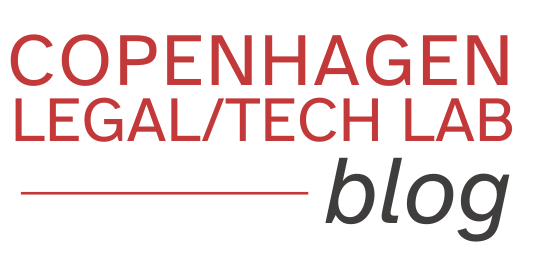A cherished child has many names: the tale of vulnerability
Editorial Launch of Copenhagen Legal Tech Blog
 The Danish proverb kært barn har mange navne – roughly translated as ‘a cherished child has many names’ – implies that an interesting phenomenon is often described in many different ways.
The Danish proverb kært barn har mange navne – roughly translated as ‘a cherished child has many names’ – implies that an interesting phenomenon is often described in many different ways.
Copenhagen Legal Tech Lab was established in 2022 as a vehicle for introducing innovation into legal education and legal practice in Denmark. We aim to create a space for understanding, researching and applying legal tech. Besides developing research, creating new innovation-driven courses and establishing an open space for innovation in law at our Faculty, we have decided to launch a new Blog that focuses on various aspects of legal innovation, including legal tech, blockchain, AI, and other breakthrough technology.
Copenhagen Legal Tech Blog is launched alongside our Copenhagen Legal Tech Lab’s 2022 annual conference: Law, Innovation and Vulnerability. The central theme for 2022 is vulnerability. Vulnerability is at the heart of innovation, and yet, lawyers are trained to be everything, but vulnerable. If we hope to transform the legal industry and our profession, we need to open ourselves to vulnerability. We need to re-design how we think about legal vulnerability, business risks as well as our own vulnerability.
We address vulnerability from three angles:
- people,
- technology, and
- business.
The broad scale of topics at the conference show exactly what a cherished child vulnerability is: vulnerability in innovation, diversity and discrimination in the legal industry, the vulnerability in cybersecurity and artificial intelligence systems, or vulnerability of central bank digital currencies or legal tech solutions. Vulnerability is woven into all parts of legal work. Yet, despite its prevalence and importance, the direly needed discussions on vulnerability are limited. With this conference, we aim to change this narrative.
To encourage the debate on vulnerability in the legal industry, the articles featured in this launching edition of the blog all address, in their own unique way, prevalent vulnerability aspects of the legal industry. Alongside the general themes of the Copenhagen Legal Tech Blog (legal tech, law and technology, and innovation in the legal industry), we will have a continued focus on vulnerability throughout the following year.
Anna Moraiti addresses the rise of virtual influencers: computer-generated profiles that interact with social media users. She poses the question who should bear the cost and who should be blamed if these influencers were to cause harm through their own actions? This contribution magnificently exposes the vulnerability of the current legal system, which inadequately encapsulates technologically-induced risks in its framework.
One of the most vulnerable parties in modern online times are the users of social media platforms. Potentially, GDPR’s article 25 – requiring data protection by design and by default – can tackle the need to protect vulnerable platform users from uncontrolled exposure to data processing mechanisms. In her contribution, Eleni Kallea examines whether social media have managed to live up to the requirements imposed by Article 25 GDPR.
Before AI can bring any solutions to solving issues in our societies, we need to solve some of the vulnerabilities the technology possesses or creates in our societies, chief among them being the issue of trust in technology. Elizabeth Quinn highlights some tried and tested tools to start solving that problem, namely ex ante Human Rights Impact Assessments. She takes us through some of the most important aspects of that process, how it has been performed in the past, and how it could be used as a basis for building trust and for showcasing compliance to the future AI act.
In her contribution Change? Sorry, we are too busy, Isabel Parker discusses the necessity for corporates and law firms to adapt to global change. Firms adapt their practices predominantly when faced with (global) crises. The latter demonstrates the firms’ vulnerability: rather than reactive change, companies should focus on strategic decisions to make their organisations future-proof – even if these do not feel as urgent as a crisis.
These enlightening contributions are only the tip of the iceberg; we will be providing you with a continuous stream of contributions in the future.
Feeling inspired? Do not hesitate to send us a contribution. We welcome contributions related to our general themes (legal tech, law and technology, and innovation in the legal industry) from authors from all disciplines and backgrounds. Contributions will be subject to an editorial review on an ongoing basis.
A full overview of the requirements for contributions can be found here.
